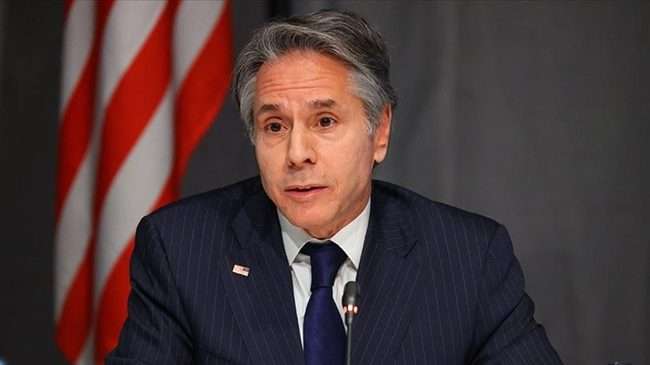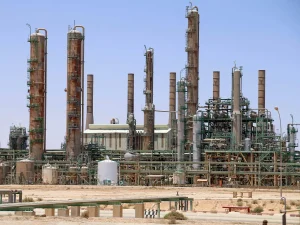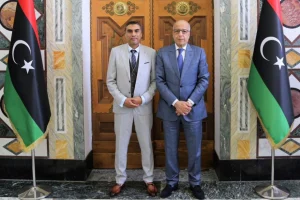Blinken now urges Tunisia to work out IMF loan problems

Both Washington and Brussels are getting increasingly nervous about Tunisia’s stalled IMF loan with now warnings of the country heading towards the abyss
US Secretary of State Anthony Blinken warned on March 22nd that Tunisia urgently needs to reach an agreement with the International Monetary Fund. Tunisia is struggling under mounting debt and price hikes exacerbated by Russia’s invasion of Ukraine. It reached a tentative agreement in October for a new loan from the International Monetary Fund of about $2 billion but is stalled due to political problems.
The agreement remained “frozen” due to the opposition of the Tunisian General Labor Union (the largest trade union organization in the country) to the terms of the fund, including the lifting of subsidies and waivers in public institutions, in contrast to the hesitation of the political authority, which fears that it will be popularly consumed by the fire of these conditions.
On the other hand, the World Bank previously suspended its activities in Tunisia until further notice, against the backdrop of statements by Tunisian President Kais Saied, in which he criticized the large presence of illegal immigrants in his country and talked about a conspiracy to change the “demographic composition” in the country.
“The most important thing they can do in Tunisia from an economic point of view is to reach an agreement with the International Monetary Fund,” Blinken said in response to a question about Tunisia during a hearing of the US Senate Foreign Relations Committee. “We strongly encourage them to do so because the economy may be heading into the unknown,” he added.
The US Secretary of State’s remarks come two days after statements made by European Union foreign policy chief Josep Borrell sparked widespread controversy in Tunisia.
Borrell said on March 20th that the bloc is concerned about the deteriorating political and economic situation in Tunisia and fears its collapse. “If Tunisia collapses, it threatens an influx of migrants towards the European Union and causing instability in the Middle East and North Africa region. We want to avoid this situation,” he added. The Tunisian Ministry of Foreign Affairs expressed its surprise at the statements of the European official, considering them “exaggerated.”
Borrell’s statements seemed relatively identical with Italian warnings about the Tunisian economic situation, but they also included an assessment that seemed intimidating of the political situation, to which the Tunisian Foreign Ministry responded.
Italy is very concerned about Tunisia’s economic situation and has previously called on the International Monetary Fund to show flexibility and release the funds agreed upon with Tunisia. Italian Prime Minister Georgia Meloni said on Tuesday that she is “working every day” on the file related to the crisis in Tunisia, in an effort to mobilize European support to resolve the economic situation in this country.
In a briefing before the Senate, in light of the European Council convening on March 23 and 24, Meloni said that she had “discussed the Tunisian file with the European Commissioner for Economic Affairs, Paolo Gentiloni,” noting that “the European Commission itself thought at the beginning of this month to go to Tunisia, but it postponed the initiative.” “.
“I would like to point out that we are facing a phenomenon that is gaining dimensions that it did not reach previously… We have before us today a huge problem related to the stability of Tunisia and the possibility of its economic collapse,” the Italian Prime Minister said in statements reported by the “Aki” news agency. “This is something that cannot be addressed, because the International Monetary Fund has suspended negotiations” with the authorities of this country. It is feared that any economic collapse in Tunisia will lead to an influx of thousands of irregular migrants, something that Rome is striving to avoid.
Alarab.co.uk
Want to chase the pulse of North Africa?
Subscribe to receive our FREE weekly PDF magazine













